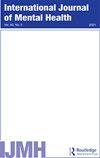包括正念在内的在线认知行为干预对临床诊断的焦虑和抑郁症的有效性:一项系统回顾和荟萃分析
IF 1.7
Q3 PSYCHOLOGY, CLINICAL
引用次数: 2
摘要
背景:考虑到正念对心理健康的益处和可扩展的治疗应用的可用性,包括正念技术在内的在线认知行为干预已经引起了相当大的关注。然而,相对而言,这些类型的干预措施的有效性知之甚少,当他们交付给临床诊断的人群接受精神病治疗。目的:本综述评估了包括正念成分的治疗干预措施,旨在减少临床诊断样本的焦虑和抑郁症状。方法在五个数据库(Medline、PsychINFO、PubMed、CINAHL、Web of Science)中检索1990年1月至2020年9月发表的评估包括正念成分的在线认知行为干预效果的随机对照试验(rct)。结果11项研究符合纳入标准,每项研究的样本量从37到84不等。研究结果显示,干预后抑郁(Hedges ' g = - 0.47)和焦虑(Hedges ' g = - 0.40)结果的组间差异总体上具有统计学意义,有利于在线治疗组。进一步的分析显示,在采用等候名单对照(WLC)比较的rct中,效果更大,干预组内抑郁症状的减轻高于BDI-II的最小临床重要差异(MCID)。结论:本荟萃分析综述的发现为将正念练习纳入现有治疗方案以减少临床诊断人群的抑郁和焦虑症状提供了初步支持。讨论了基于正念的在线认知行为编程的研究意义和重点。本文章由计算机程序翻译,如有差异,请以英文原文为准。
Effectiveness of online cognitive behavioral interventions that include mindfulness for clinically-diagnosed anxiety and depressive disorders: A systematic review and meta-analysis
Abstract Background Online cognitive behavioral interventions that include mindfulness techniques have attracted considerable attention given the demonstrated mental health benefits of mindfulness and the availability of scalable opportunities for increased therapeutic use. However, comparatively little is known about the effectiveness of these types of interventions when they are delivered to clinician-diagnosed populations receiving psychiatric treatment. Aims This review evaluates therapeutic interventions that included a mindfulness component aimed at reducing anxiety and depression symptoms in clinician-diagnosed samples. Methods Randomized control trials (RCTs) published between January 1990 to September 2020 assessing the effects of online cognitive behavioral interventions that include a mindfulness component were searched across five databases (Medline, PsychINFO, PubMed, CINAHL, Web of Science). Results Eleven studies met inclusion criteria with sample sizes ranging from 37 to 84 per study. Findings revealed an overall statistically significant moderate between-group difference at post-intervention for depression (Hedges’ g = −0.47) and anxiety (Hedges’ g = −0.40) outcomes favoring the online treatment groups. Further analyses revealed larger effect sizes among RCTs employing waitlist control (WLC) comparisons, and reductions in depression symptoms within the intervention groups to be above the minimal clinically important difference (MCID) for BDI-II. Conclusions Findings from this meta-analytic review provide preliminary support for including mindfulness practices within existing therapeutic programs to reduce depression and anxiety symptoms in clinician-diagnosed populations. Research implications and priorities for online mindfulness-based cognitive behavioral programming are discussed.
求助全文
通过发布文献求助,成功后即可免费获取论文全文。
去求助
来源期刊

INTERNATIONAL JOURNAL OF MENTAL HEALTH
PSYCHOLOGY, CLINICAL-
CiteScore
3.80
自引率
20.00%
发文量
32
期刊介绍:
The official journal of the World Association for Psychosocial Rehabilitation, the International Journal of Mental Health features in-depth articles on research, clinical practice, and the organization and delivery of mental health services around the world. Covering both developed and developing countries, it provides vital information on important new ideas and trends in community mental health, social psychiatry, psychiatric epidemiology, prevention, treatment, and psychosocial rehabilitation.
 求助内容:
求助内容: 应助结果提醒方式:
应助结果提醒方式:


